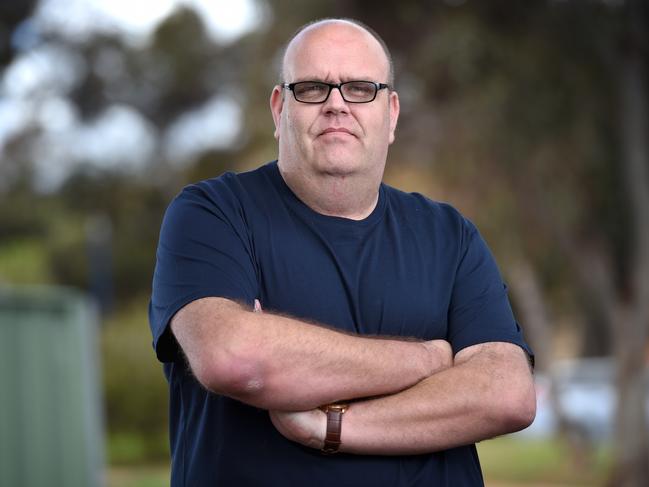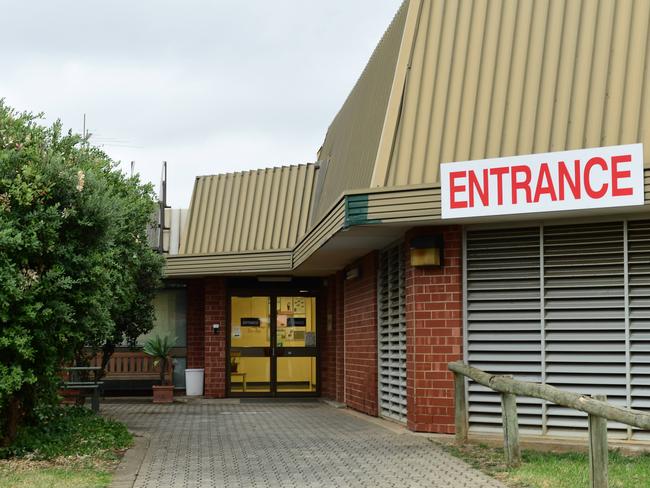David Penberthy: Government’s aged care censorship is inexcusable
It may be in the best interests of the government to keep people away from the truth of our aged care sector, but to do so is a brutal disgrace to all Australians, writes David Penberthy.

Rendezview
Don't miss out on the headlines from Rendezview. Followed categories will be added to My News.
Imagine having an elderly parent in aged care and being presented with the following audit report into complaints about the facility they were being housed in.
“One care recipient in the hospital section said there are [DELETED] on the roster that are [DELETED] and [DELETED]. The care recipient said [DELETED] [DELETED] [DELETED] [DELETED]. This care recipient also said they do not complain because nothing will be done. Staff described this [DELETED] as a [DELETED].”
Or how about this one?
“The care recipient was observed in a lounge during lunch. Their meal was placed on an over-way in front of [DELETED] [DELETED]. Care recipient [DELETED] in the hospital is bed bound, has [DELETED] [DELETED] risk, has a [DELETED].
Imagine if you were presented with an audit report where whole pages were almost entirely blacked out, save for a few ominous words such as “wound care”, “not being showered”, “soiled clothing”, and other random non sequiturs suggesting something troubling was occurring, but giving you no context as to who was being affected by such breaches of care, or who was responsible for them.
MORE FROM RENDEZVIEW: Our treatment of the aged is a disgrace
None of these examples are made up. They are direct extracts from current, official government audits of Australian aged care homes. By not telling an intelligible story, they tell a compelling story as to how the public is still being kept in the dark about the true standard of care for our elderly.

The interim report of the Royal Commission into Aged Care makes for bracing reading. It’s even more depressing when you consider the context in which this report has finally arrived.
It speaks volumes about our priorities when you consider the other policy areas into which governments have ordered royal commissions or judicial inquiries, or called on the consumer watchdog to launch investigations.
Off the top of my head in the past 20-odd years we have had inquiries into banking, financial services, the greyhound industry, live exports, milk prices, petrol prices, the monopolies within the pharmacy and newsagent industries, and a series of ideologically-driven inquiries into union conduct and the insulation rollout.
MORE FROM DAVID PENBERTHY: People who are different can still be friends
Only now have we started to turn our attention to the fact elderly people are being beaten, abused, treated like irritants for being unable to shower or go to the toilet, fed food you wouldn’t give to a dog, and being unnecessarily overmedicated, indeed knocked out, as a way of managing their behaviour.

What a shocking indictment of our warped priorities.
I spoke last week to Stewart Johnston who is one of the whistleblowers who helped get the ball rolling for the belated Royal Commission into Aged Care and who gave powerful testimony at one of its hearings.
Johnston is typical of the many people who in their own subdued but heroic fashion made this commission a possibility, in that his experience in seeking justice for his late mother was stymied by the preferred weapon of governments and, more importantly, bureaucracies.
That weapon is secrecy.
It was 2008 when Stewart and his late father Ian first started asking questions about the treatment his mother Helen was receiving, or enduring, at the Oakden Aged Care facility in Adelaide’s northern suburbs.
Helen had told her son and husband that she was being slapped, shouted at, denied assistance to use the toilet and physically slammed down onto the toilet seat and thrown into her wheelchair by an angry male staff member.

She also received more than 20 rounds of electroshock therapy, with her family given scant time to give approval and no explanation as to the need for or benefits of the procedure.
After receiving those electric shocks Helen Johnston developed a pathological lifelong aversion to going to hospital at all, suffering further deterioration in her health as a result.
The reaction from the Oakden management was to tell Stewart and Ian Johnston that Helen was a confused old lady.
MORE FROM DAVID PENBERTHY: Beaches belong to all, not just the rich
We now know, of course, that every single thing this woman said was true. As it was with so many other people of her age and with a similar health profile who were ensconced in this infernal dump of a joint.
The truth about Oakden finally came out in 2017, and it has since closed, with several staff being weeded out of the system forever more.
The galling thing for Stewart Johnston today is that even amid this new scrutiny, and with governments talking the talk about transparency and disclosure, we are still seeing the same kind of obfuscation as epitomised by these official audits quoted above.

There is a view out there – held it would seem most fervently within the Morrison Government, professionally ambivalent as it is on the issue – that the media’s Right To Know campaign is a self-interested journalistic indulgence, aimed at defending the God-given right of the press to burst forth with any old piece of tendentious crap.
Stewart Johnston sees it differently. He sees cases such as those involving his Mum, and the absurd Blankety Blanks-style guessing game with these new aged care audits, as a dangerous culture of censorship and deceit, that at its worst is actually a genuine danger to people’s health and lives.
“If it wasn’t so serious you would think that it’s a joke,” Stewart Johnson said on Friday.
“A report commissioned to shine a light casts a bigger shadow in its report. Good one. No wonder we are in this mess.”
The thing is, as Oakden tells us, the reason that questions go unanswered or words get blacked out isn’t to protect the patients or to protect the generally good reputation of aged care providers.
It’s to protect the really bad ones, be they government-run facilities that are managed by bureaucrats with a vested interest in their continued employment, or privately-operated ones run by business people with a vested interest in maintaining profits.
It has to stop, and as a starting point, someone in power needs to tell the people in the bureaucracy that it’s time to put the black textas away.
Originally published as David Penberthy: Government’s aged care censorship is inexcusable



